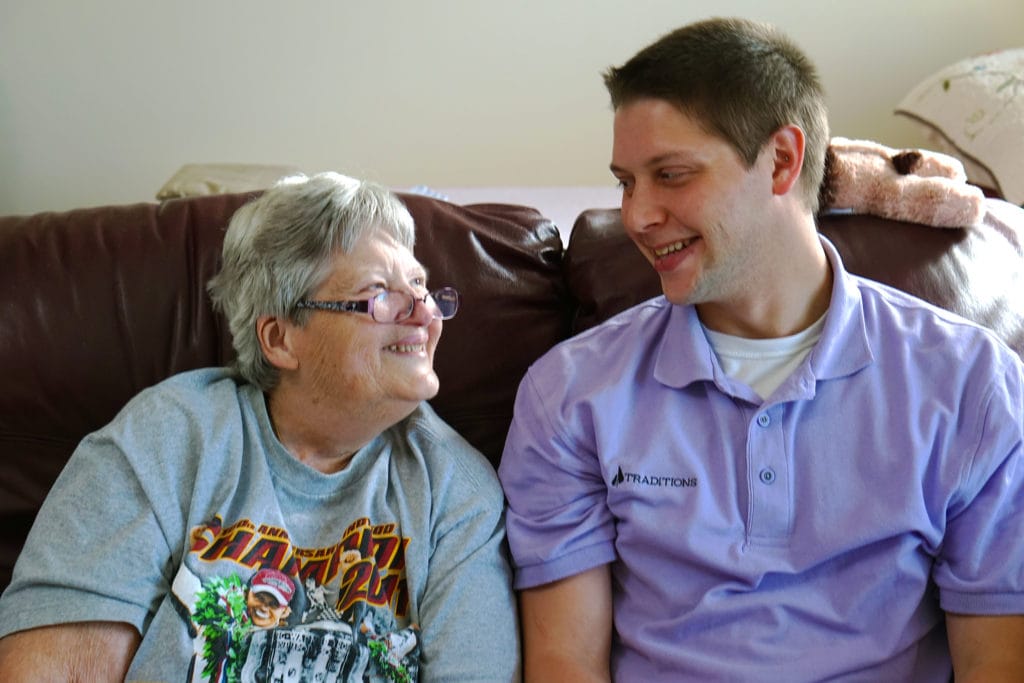Certified Nurse Assistant

Learn about our CaregiversFL Career Program
The main role of a Certified Nurse Assistant (CNA) is to provide basic care to patients and assist them in daily activities that include bathing, dressing, feeding and taking vital signs. The role of a CNA is extremely essential in long term care. CNAs often spend the most time with residents, which enables them to quickly identify changes in condition and help to ensure timely care. Compassionate individuals with a deep desire to care for others are needed to fill these positions.
Education & Experience:
A CNA must complete a state approved nurse aide training program, pass the state-approved competency evaluation consisting of both a written and a skills test, and be listed in good standing on the CNA Registry with the Florida Department of Health. Individuals must also clear the Agency for Health Care Administration (AHCA) fingerprinting and Level 2 background checks and cannot be listed on the United States Department of Health and Human Services Office of Inspector General’s List of Excluded Individuals and Entities.
CNAs must undergo a minimum of 120 hours of combined classroom, lab and clinical training, with a total of 80 hours of classroom instruction and hands-on lab, and the final 40 hours in a supervised clinical experience working directly with residents. Students can apply for training at one of the many technical institutes, high schools, nursing homes, community colleges and private institutions around Florida. The training program must be approved by the Florida Board of Nursing.
Salary Average
$17.95 per hour
Certifications
Qualified Medication Aide
Restorative Aide
Next Steps
Qualified Medication Aide
Restorative Aide
Licensed Practical Nurse
Social Services
Activities Professional
Restorative Aide
A restorative aide is a certified nursing assistant (CNA) who has additional, specialized training in restorative nursing care. Restorative aides assist residents with exercises designed by the nursing or rehabilitation staff to help them improve the use of limbs and body functions. A restorative aide’s duties can include assisting residents with walking, strength training and range of motion exercises, dressing and grooming. Restorative aides work as a part of a care team and are responsible for documenting residents’ daily activities and progress. Like CNAs, restorative aides play a very hands-on role in the care process and spend a significant part of their time working closely with residents.
Education & Experience:
Restorative aide is a skill and a job classification that builds on a CNA (Certified Nurse Aide). Work experience as a CNA and usually completion of high school or GED.
Certifications
Physical Therapy (PT)
Occupational Therapy (OT)
Speech
Respiratory
Music
Next Steps
Physical Therapy Assistant (PTA)
Occupational Therapy Assistant (OTA)
Qualified Medication Aide
A qualified medication aide (QMA) is a certified nurse aide (CNA) who has completed additional training and demonstrated competency while dispensing medications and applying or administering treatments under the direct supervision of a registered nurse or a licensed practical nurse. The QMA assists the professional nursing staff in assuring that standards of resident care, comfort, and safety are maintained by administering medications and treatments.
Education & Experience:
A QMA must complete a state-approved CNA training program, be in good standing, take the standardized Assisted Living Community (ALC) Medication Aide Training Program, and score 80% or higher on a state competency exam.
Certifications
Medical Records
Next Steps
Nurse
So, is it time to find your life’s work?
Interested in career training, education, job placement or internships?
